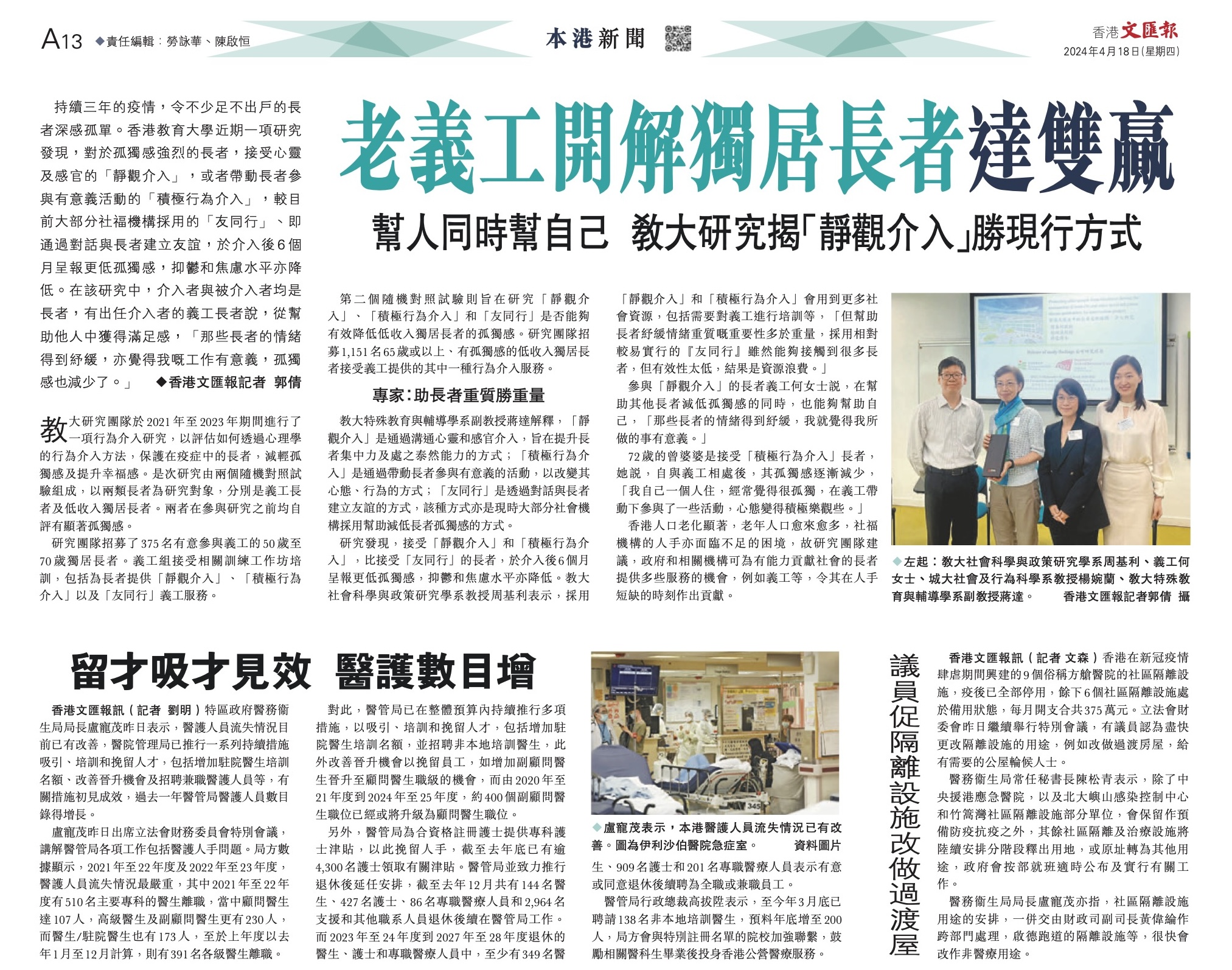Protecting older people from loneliness during the coronavirus (Covid-19) and other novel infectious disease pandemic
Funding Scheme
Collaborative Research Fund (RGC)
Funding Amount
HK$5,487,015
Awarded Year
2021
Ameliorating loneliness and the effects of loneliness on the elderly
Loneliness is common among Hong Kong older adults, and negatively impacts both individuals and society. It is associated with increased costs of direct and indirect healthcare as well as of long-term care. It is valuable to implement effective, accessible, affordable, and scalable interventions to alleviate loneliness in old age. We aim to reduce loneliness among at-risk older adults through developing and implementing a dual randomized controlled trial (RCT) known as “Helping Alleviate Loneliness in Hong Kong Older Adults” (HEAL-HOA). Volunteers aged 50-70 are recruited and trained to deliver remote, telephone-based psychosocial interventions (e.g., behavioural activation, mindfulness, befriending) to peers who are experiencing loneliness, living alone and/or in poverty, and/or lacking digital accessibility.
Sustainable Development Goals
In 2015, UN member states agreed to 17 global Sustainable Development Goals (SDGs) to end poverty, protect the planet and ensure prosperity for all. The research team contributes towards the following SDG(s):
The World Health Organization (WHO) identifies loneliness among older adults as a major health concern worldwide (WHO, 2021). Empirical studies show that loneliness affects more than 20% of older adults in China, Europe, and the United States. Loneliness is particularly common among older adults in Hong Kong, who will soon account for over 30% of its total population. Our aim is to tackle Hong Kong’s loneliness pandemic, a public health crisis.
Around 46% of Hong Kong’s older adults experience loneliness. Apart from its emotional toll, loneliness in the elderly is linked to detrimental physical and mental health outcomes including, but not limited to, poor cardiovascular health, diminished life quality, sleep disorders, cognitive deterioration leading to dementia, anxiety, depression, and heightened risk of death. Loneliness's economic implications range across and include elevated healthcare and long-term care expenditures and diminished workforce productivity. Tackling loneliness is a crucial issue due to its prevalence and its detrimental consequences for individuals, their families, and society.







